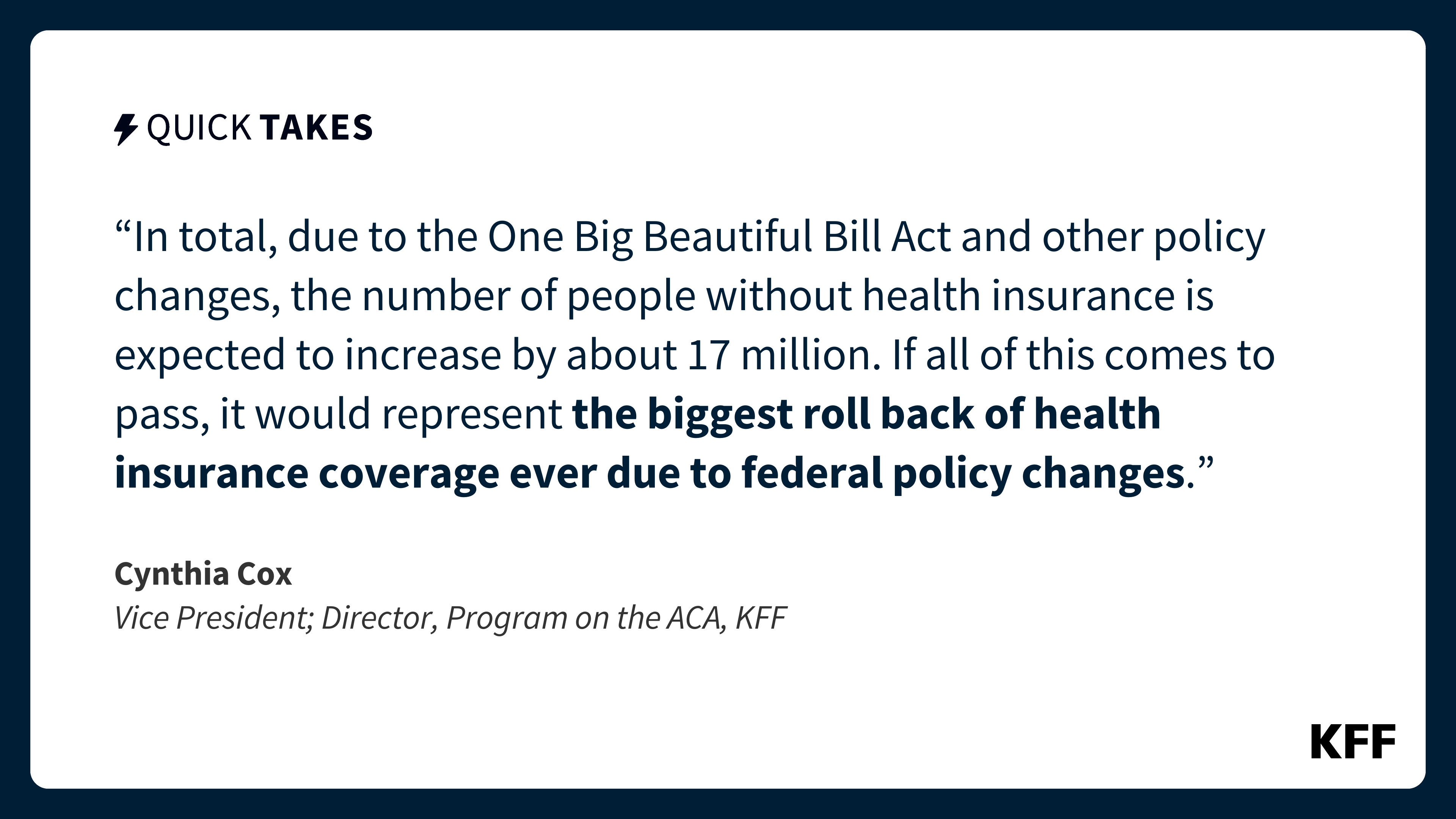- Joined
- Aug 10, 2013
- Messages
- 25,605
- Reaction score
- 32,684
- Location
- Cambridge, MA
- Gender
- Male
- Political Leaning
- Slightly Liberal
The Wall Street Journal rounds up the coming fallout from Trump and the GOP's health care cuts. Millions of Americans losing their health care. Steep cuts to nutritional assistance. Hospital closures, cuts, and/or cost-shifting as revenue shrinks. Soaring premiums as insurance risk pools degrade. Holes blown in state budgets.
We've got some ugly years coming.
How Healthcare Cuts in the ‘Big, Beautiful Bill’ Will Affect Americans
We've got some ugly years coming.
How Healthcare Cuts in the ‘Big, Beautiful Bill’ Will Affect Americans
There will be nearly 8.7 million fewer people covered by Medicaid over the next decade because of the bill, according to an analysis by Manatt Health, a consulting firm that advises states and healthcare providers on Medicaid policy. Other provisions in the bill, including more-stringent requirements for people to enroll and retain health-insurance plans under the Affordable Care Act, also known as Obamacare, are projected to drive up the number of uninsured, healthcare experts said.
People in the lowest 10% of income distribution in the U.S. stand to lose noncash government benefits such as Medicaid coverage and food stamps worth nearly $1,600 annually on average, according to an analysis of an earlier version of the bill by the Congressional Budget Office.
State hospital associations said these payments are lifelines for hospitals, many of which operate at or near a loss. Even before the bill’s passage, several hospitals across the country laid off employees, froze hiring and tightened spending, citing the impending cuts to Medicaid as a factor. Providence, one of the country’s largest health systems, said last month that it had implemented a restructuring plan that would lead to 600 employees losing their jobs.
In Obamacare and Medicaid, the shrinking rolls are likely to create another headache for insurers. When people drop out of insurance markets, the healthier ones are often the first to go. That leaves a sicker, more costly pool of customers for insurers, which then seek to get paid more to cover those expenses. They demand higher premiums, either from state Medicaid agencies or from Obamacare customers.
On a percentage basis, red and purple expansion states will be hit hardest since many of them tend to rely heavily on provider taxes, says Avi Herring, a Manatt managing director. Montana faces a 21% reduction in state and federal funds; Arizona, Kentucky and Virginia are each looking at reductions of about 18%.



